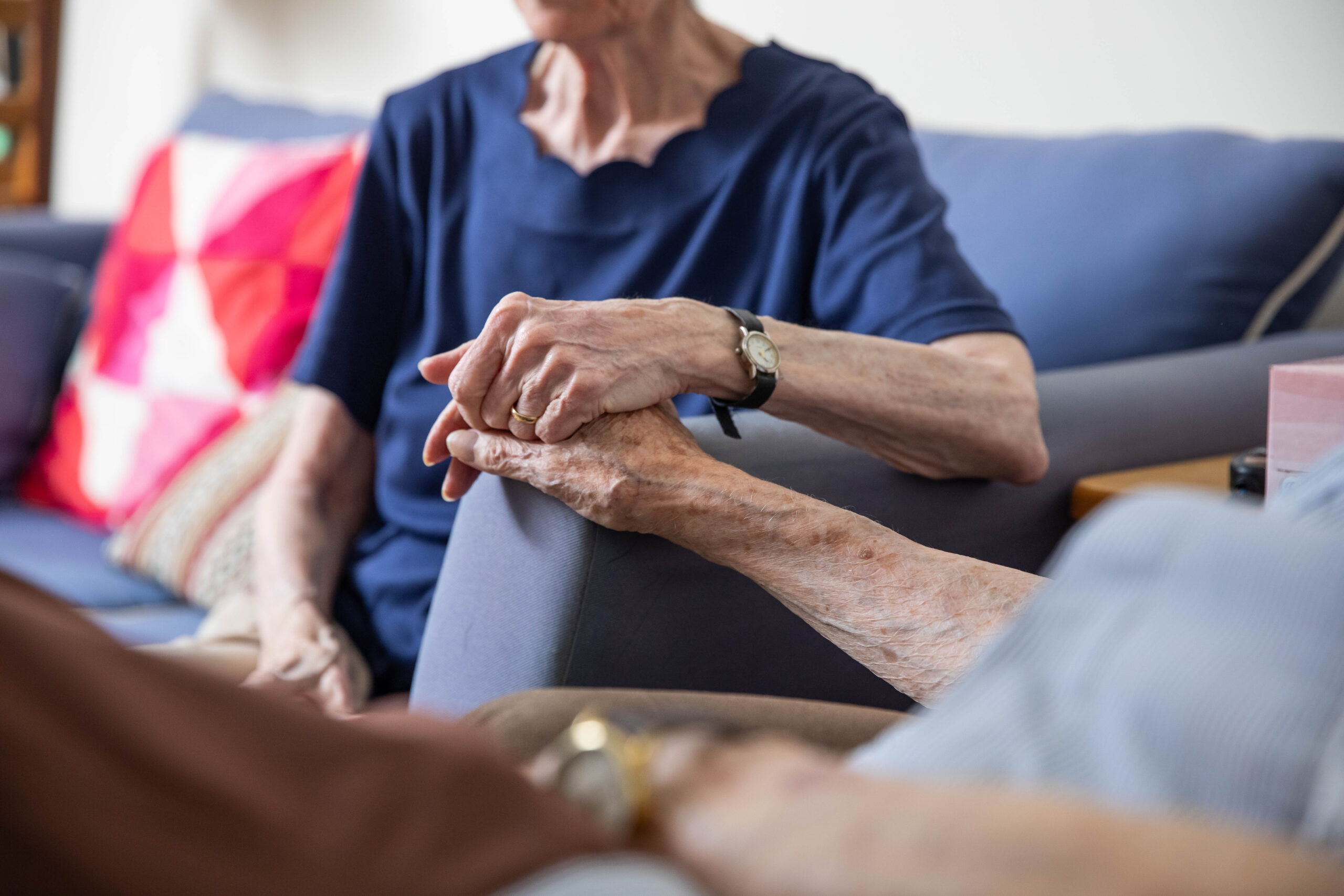We have often remarked that the age at which a senior begins to decline physically and/or cognitively is different for everyone. And we’ve acknowledged that even the mere thought of deterioration is nothing anyone enjoys thinking about. But, perhaps the most jolting situation occurs when one spouse/partner of a vibrant couple becomes suddenly incapacitated or loses the ability to live as actively as they had in the past.
In many of these instances, the healthy spouse/partner finds themselves in a new role as caregiver. Take a minute and think about what that means. Typically, most couples who have been together for any length of time have established roles in the household. One pays the bills, the other manages the yard. One cooks, the other cleans…and so on. So, when a partner is no longer able to perform their “tasks,” the work doesn’t just go away. It falls on the healthier partner to step in and make sure the “job” gets done – and then some.
It may sound easy on paper, but in practice, several factors can wreak havoc in a couple’s life. For example:
- Spouse A, who always managed the finances and paid the bills, becomes compromised. Spouse B doesn’t know what bills exist, let alone when they are due and how to pay them.
- Spouse B did all the cooking and now special dietary requirements are advised for Spouse A.
- Spouse B is experiencing limitations due to a recent knee replacement and is not as mobile as before but now is responsible for cleaning and maintenance.
Add to that, if Spouse A requires frequent medical attention – either due to doctor’s appointments or medication management – within a very short period, Spouse B can burn out.
Some may throw up a white flag and call in the cavalry of family and friends. But, in our experience, many soldier on in silence, fiercely protecting their independence. These cases often lead to stress and a further deterioration of their own health – and mistakes begin to happen. But asking for help doesn’t have to mean surrendering independence.
For those who are seeking to maintain independence but are feeling overwhelmed in the newly minted role of caregiver and house manager, how you ask for assistance is important. So how do you ask for the right kind of help – the help that allows you to continue to retain the role of decision maker?
For starters, you need to be clear that you are asking for assistance, not for someone to take over. To a large extent, this means maintaining your existing systems. Keep in mind that whoever is helping you may have suggestions for more efficient ways to complete tasks – and you should be open-minded to these ideas. For example, putting bills on autopay or paying them online may reduce the stress of remembering due dates and limit late fees. This only works, however, if you feel comfortable with the technology. Being confident with the system in place is important for maintaining a sense of control.
The same thing holds true for organization within your home. Perhaps you and your partner have collected a lot of possessions over the years. Some of these things are valued treasures; others not so much and could be donated or disposed of. Maybe you just need things reorganized to suit your needs. But if someone comes in and moves your stuff so that it doesn’t work for you; if you can’t find things or they discard things that are important to you, it is not helping. You need to play an active and decisive role in identifying what system works for you and what items must stay.
As a partner becomes a caregiver, typically an unfamiliar role, it is natural for well-meaning family and friends to want to help or provide advice which can lead to a war of wills or hurt feelings. Both sides need to take a step back and recognize the new reality and respect your wish to maintain your independence and offer assistance within that frame of mind.
A great way to avoid conflict in the heat of the moment is to start having conversations before either partner declines. Again, no one likes to think about diminishing health, but discussing “what happens if” and advance planning can work wonders for family relationships and the elder retaining control.
One last thing to note. If a spouse/partner becomes incapacitated, the caregiving partner is at risk of becoming isolated due to increased responsibilities. Self-care and respite for the caregiving partner should be a priority and part of any aging-in-place plan.
If you or someone you know has recently assumed the role of caregiver, we are available to consult and suggest ways to help maintain independence and reduce stress.

